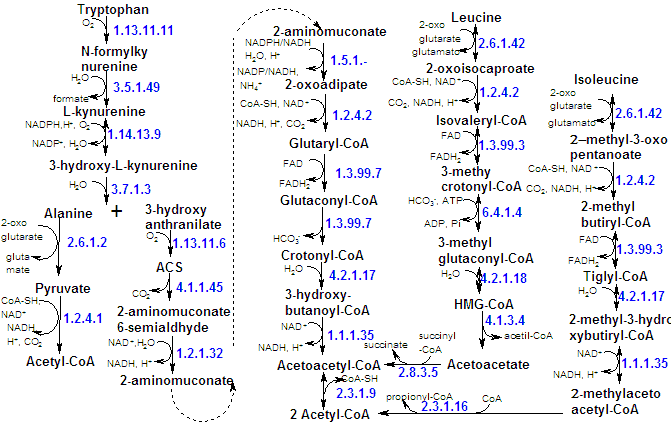

Isoleucine,
Leucine and Tryptophan degradation to Acetyl-CoA |

|
|
|
|
Tryptophan dehydratation is the most complex catabolism pathway of animal tissues. Fragments of the molecule releases acetyl-CoA by two differents ways: by pyruvate and by acetoacetyl-CoA (the same pathway by wich Leucine releases acetyl-CoA). |
|
Some of the intermediates in the tryptophan catabolism are important precursors in the synthesis of physiologically active biomolecules as: Nicotinate – NAD and NADP precursor; Indolecetate – a plant growth factor; and Serotonin, a neurotransmissor. |
|
Leucine is very common in proteins. It's ketogenic and has an important role in the ketone bodies production during starvation. It's degradation pathway resemble that of valine and isoleucine. (Leucine and lysine are the only solely ketogenic amino acids of the common set of 20). |
|
Tryptophan, Isoleucine (see notes), Phenylalanine and Tyrosine are both ketogenic and glucogenic. |